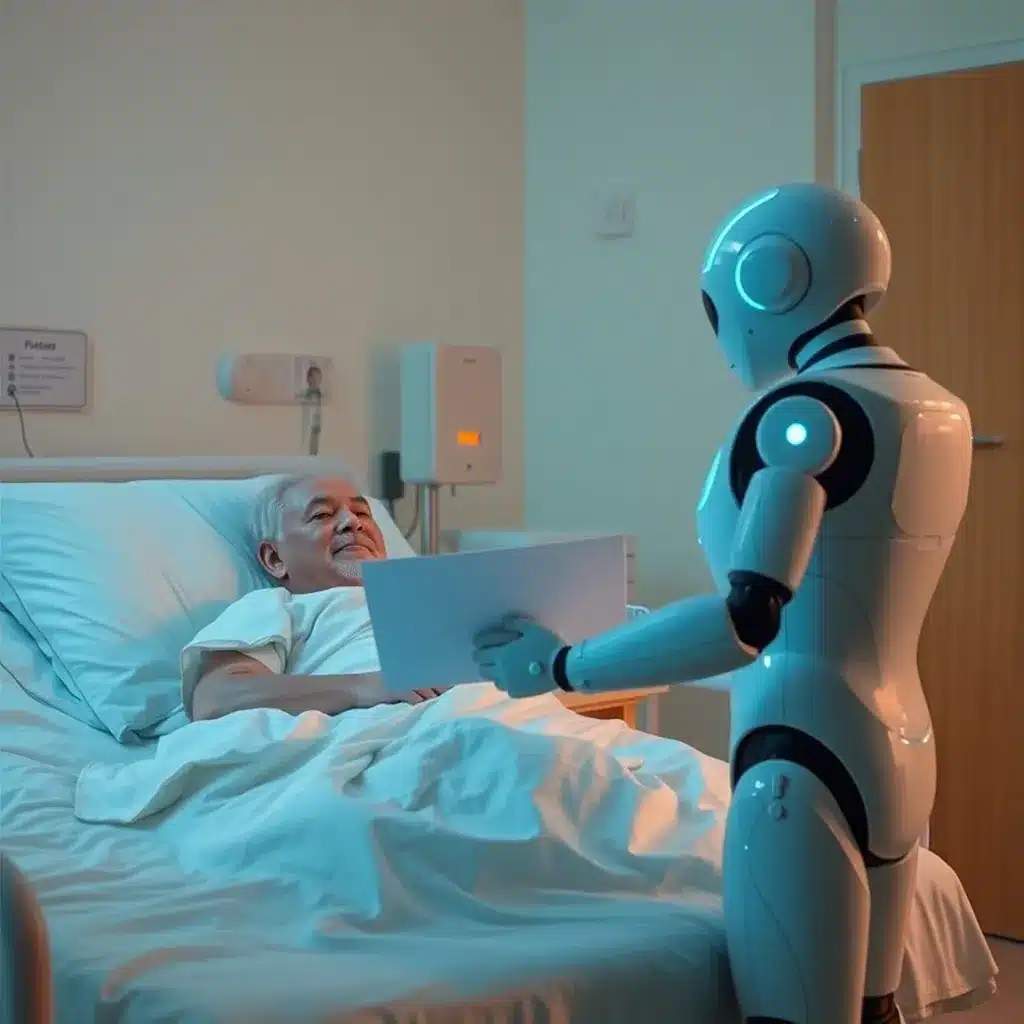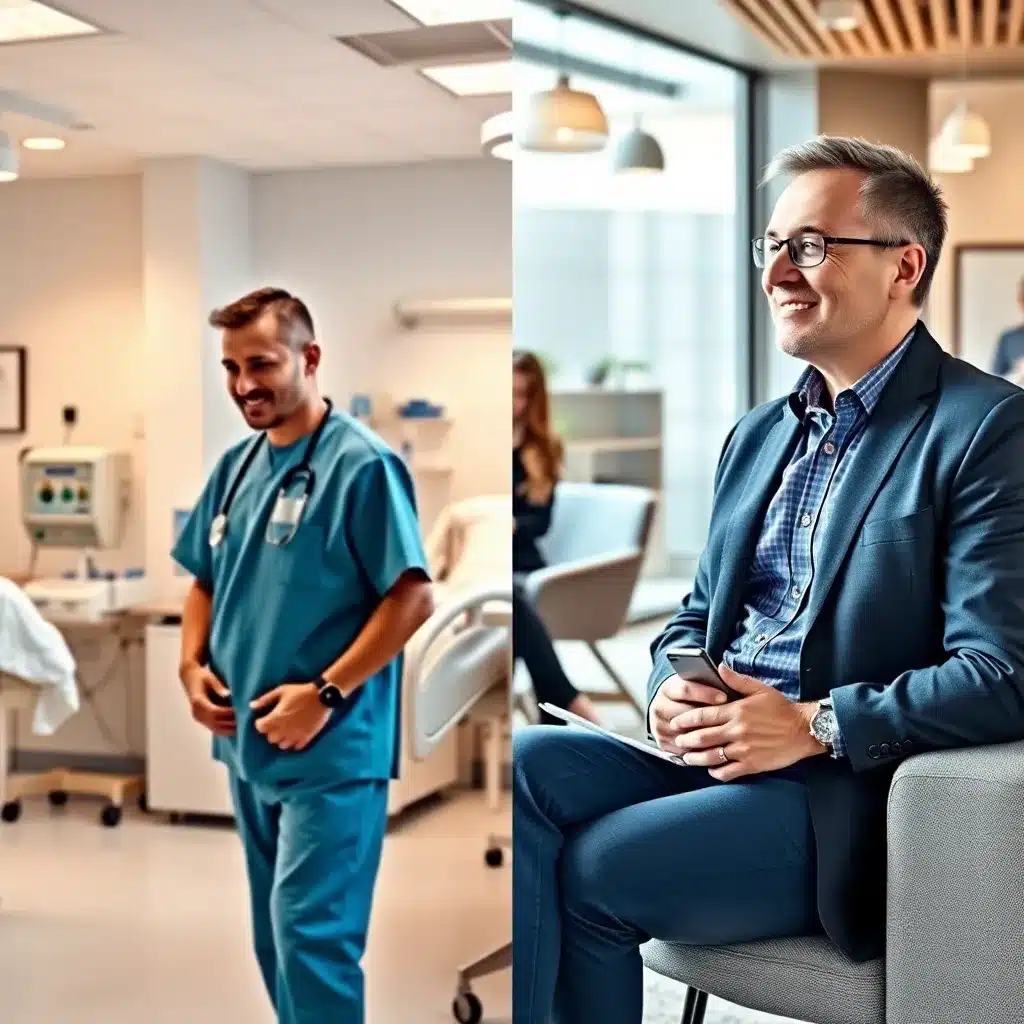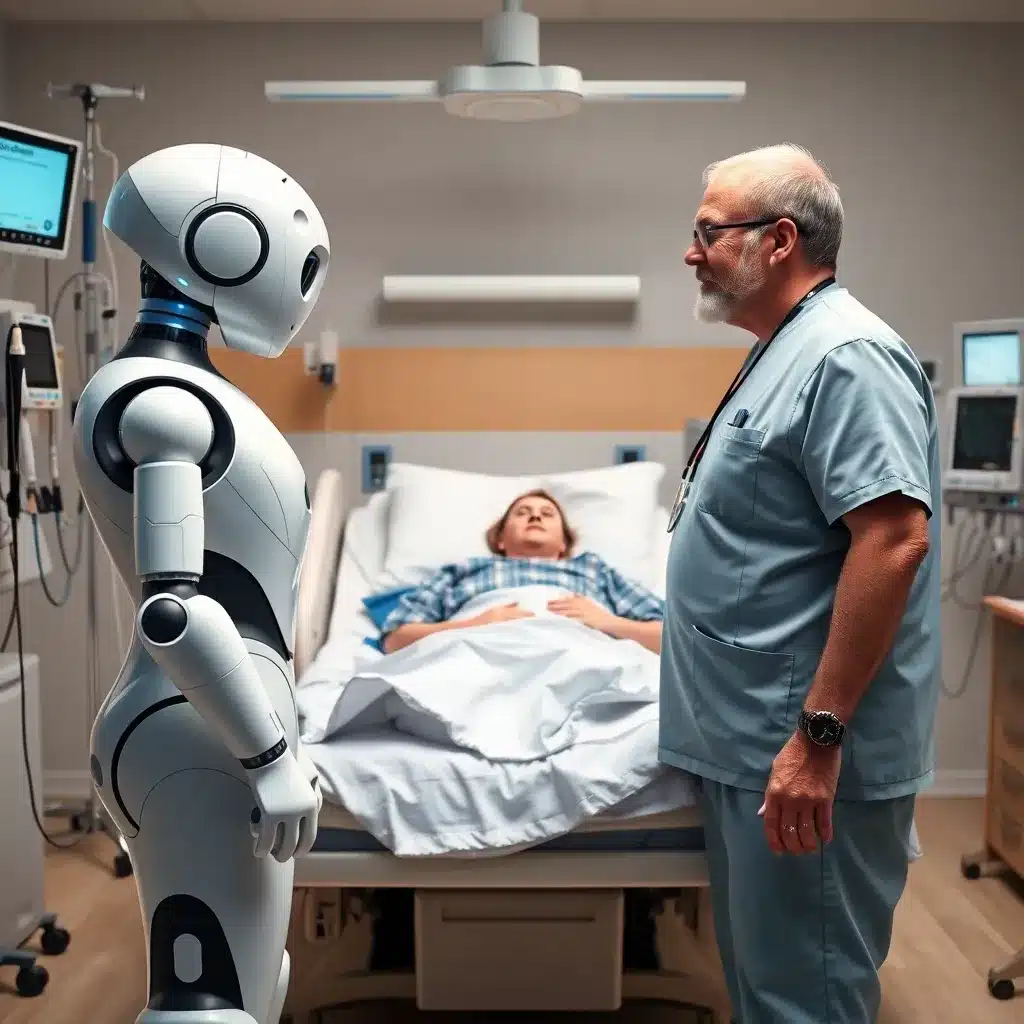David’s Story Reveals the Truth
As technology rapidly advances, artificial intelligence (AI) is transforming industries everywhere, and healthcare is no exception. While AI brings potential for greater efficiency and precision, it raises a pressing question: Can it truly replace the human touch at the heart of healthcare? For David, a 55-year-old nurse who has spent over three decades caring for patients, the arrival of AI in his hospital feels like an unsettling shift. Through David’s story, we explore the significant fears, pains, and aspirations of healthcare professionals adapting to this new reality, shedding light on what AI’s role means for the future of caregiving.
The Challenge of Job Security in an AI-Driven World
AI’s Impact on Healthcare Jobs
As AI's capabilities grow, a cloud of uncertainty looms over many healthcare workers. The tasks they've dedicated their lives to, such as tracking vital signs, processing medical records, and diagnosing patients, are now being handled by machines. McKinsey & Company’s research suggests that healthcare support roles may face the highest potential shifts as AI continues to evolve (McKinsey, 2022). For David, witnessing AI take over the responsibilities he once held is a disturbing experience. The fear of AI’s efficiency rendering his role as a nurse redundant is a common sentiment among his peers. The question that echoes in their minds is, 'If AI can do it faster, where do I fit in?'
While AI brings undeniable advantages in accuracy and speed, it lacks something David values deeply: empathy. David’s role isn’t just about managing data; it’s about being present, reading subtle signs, and offering comfort. He fears that AI may undermine the human connection at the core of healthcare, leaving patients feeling alienated. This conflict between efficiency and empathy drives much of David’s internal struggle as he adapts to this changing landscape.
Facing Emotional and Psychological Strain
The Hidden Stress of Technological Transition
For David, the introduction of AI brings not only professional uncertainty but also a profound emotional strain. Working in healthcare has always been a source of purpose, a way to make a real difference. However, as AI takes on more tasks, he starts to question his value and purpose. This isn’t just a fear about job security—it’s about identity.
Many seasoned healthcare professionals, like David, face an internal battle: the feeling that machines could overshadow their years of hard work and dedication. Research by the American Nurses Association highlights that healthcare professionals increasingly require continuous education to keep up with new technologies (American Nurses Association, 2023). This transition isn’t merely a technical one; it’s a profound emotional adjustment. David’s worry reflects a common sentiment among his peers as they try to reconcile their dedication to patient care with an advancing, impersonal technology.

The Loss of Patient Connection and Ethical Dilemmas
Can Machines Truly Care?
One of David’s most significant concerns is the loss of genuine human connection with his patients. He observes how AI can quickly record patient information and monitor conditions, yet it can’t notice the nuances he’s trained himself to see over decades. For instance, a patient’s nervous glance or a slight change in tone are things that machines might overlook, but David knows that these could be vital clues.
Ethical concerns also weigh heavily on David. As AI’s influence grows, he fears that important decisions might be left to algorithms rather than to people with empathy and judgment. The World Health Organization (WHO) emphasizes the need for human oversight in AI healthcare applications to ensure patient safety and trust (WHO, 2023). David grapples with the idea that critical healthcare decisions could rely solely on data rather than compassionate care, a concern that resonates with many healthcare professionals.
Adapting to New Responsibilities and a Steep Learning Curve
From Caregiving to Tech Management
David’s responsibilities have shifted significantly since the arrival of AI. Now, instead of focusing entirely on patient care, he finds himself troubleshooting AI systems and learning new digital tools. For someone who built his career on bedside care, this change feels foreign and, at times, frustrating.
The need to continuously learn new tech skills adds stress, especially for professionals like David, who aren’t “digital natives.” He finds himself juggling patient care with technical support—a balance that sometimes leaves him feeling inadequate. This struggle highlights a common issue in healthcare: the expectation that workers will adapt to complex technology with minimal training and support. Research by the National Institute for Healthcare highlights that the lack of adequate training programs often compounds the stress healthcare professionals face (NIH, 2023).
Financial Concerns in an AI-Integrated Workplace
Can AI Affect Income Stability?
As AI systems become more advanced, healthcare organizations may reduce human labor costs by cutting back hours or shifting roles. David feels the financial impact of this shift firsthand, with fewer hours and a less predictable schedule. Approaching retirement, he had hoped for economic stability, but now, the future feels uncertain.
Research from the National Bureau of Economic Research suggests that automation impacts job stability, pushing many healthcare workers to consider supplemental income sources or career adjustments (NBER, 2023). David begins exploring other ways to support his income, including considering a side business—a daunting prospect at his age. This financial strain reflects a growing reality for healthcare professionals facing technological shifts. While AI might improve operational efficiency, it could also destabilize income for those who depend on regular hours.

Finding a New Role Amidst Change
David as a Mentor and Advocate for Balanced Care
Despite these challenges, David finds a new purpose by mentoring younger nurses on balancing AI’s benefits with compassionate care. He teaches them to respect the role of technology without losing sight of human empathy. In doing so, David finds himself filling a unique role: a bridge between traditional caregiving and modern healthcare.
David’s adaptation reminds us that while AI might reshape tasks, the role of human advocates in healthcare remains vital. His journey emphasizes that technology and empathy can coexist, each enhancing the other when balanced correctly.
Conclusion
Can AI Truly Replace the Heart of Healthcare?
David’s story captures a reality many healthcare professionals face as AI becomes an integral part of the industry. While AI brings precision and efficiency, it lacks the warmth and empathy that define human caregiving. Through David’s experiences, we see that AI may complement healthcare, but it cannot replace the heart of it.
As healthcare continues to evolve, professionals like David remind us of the importance of balancing technology with a human touch. AI can streamline processes, but only people can provide the compassion that patients rely on. David’s journey highlights a universal truth: in healthcare, machines may support the process, but humans remain at their heart.
References:
- American Nurses Association. (2023). The Role of Technology in Nursing. Retrieved from [ANA website].
- McKinsey & Company. (2022). The Future of Work: AI in Healthcare. Retrieved from [McKinsey website].
- National Bureau of Economic Research. (2023). Automation and Job Stability in Healthcare. Retrieved from [NBER website].
- National Institute for Healthcare. (2023). Adapting Healthcare Training to Meet Technological Needs. Retrieved from [NIH website].
- World Health Organization. (2023). Ethics in AI Healthcare Applications. Retrieved from [WHO website].
